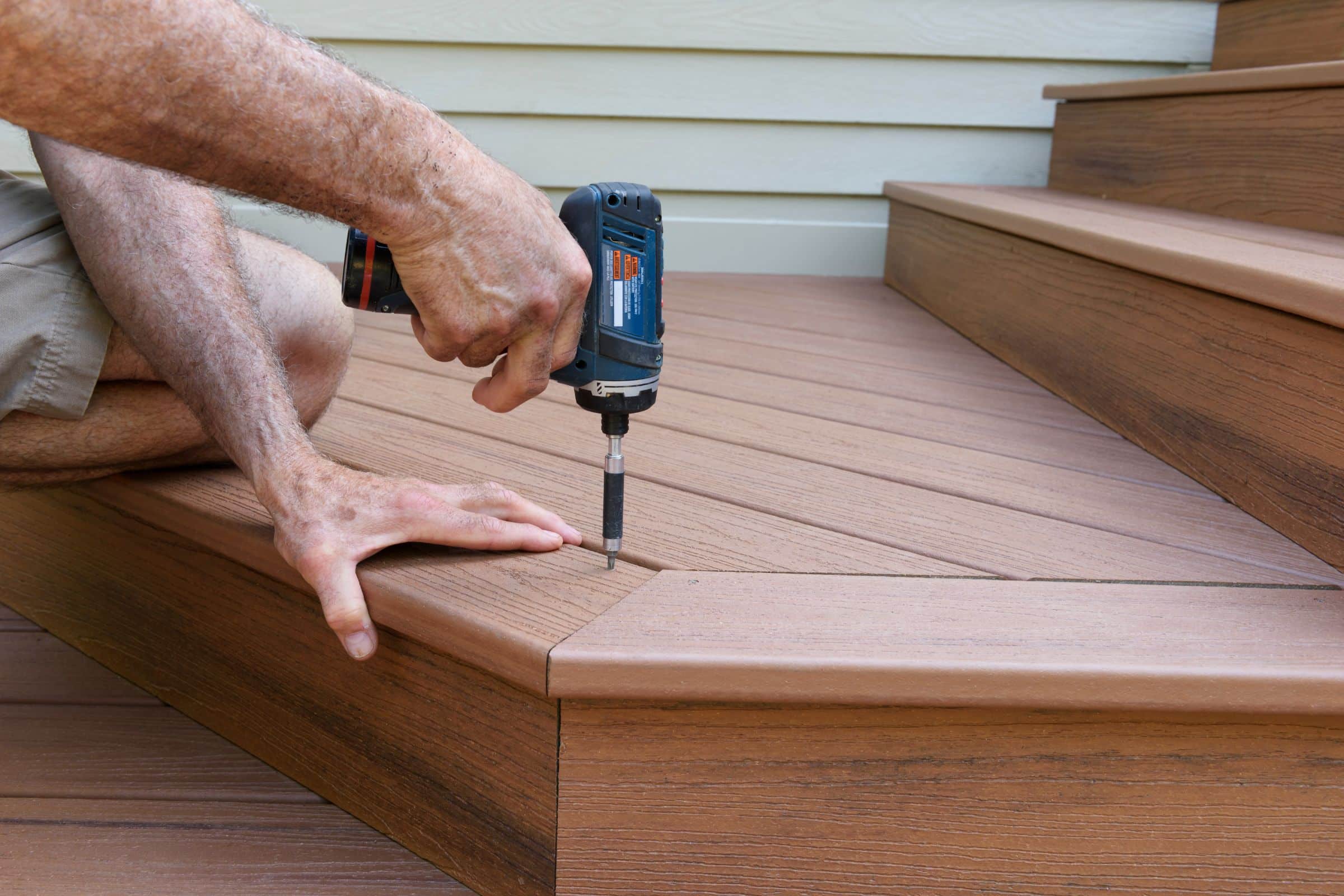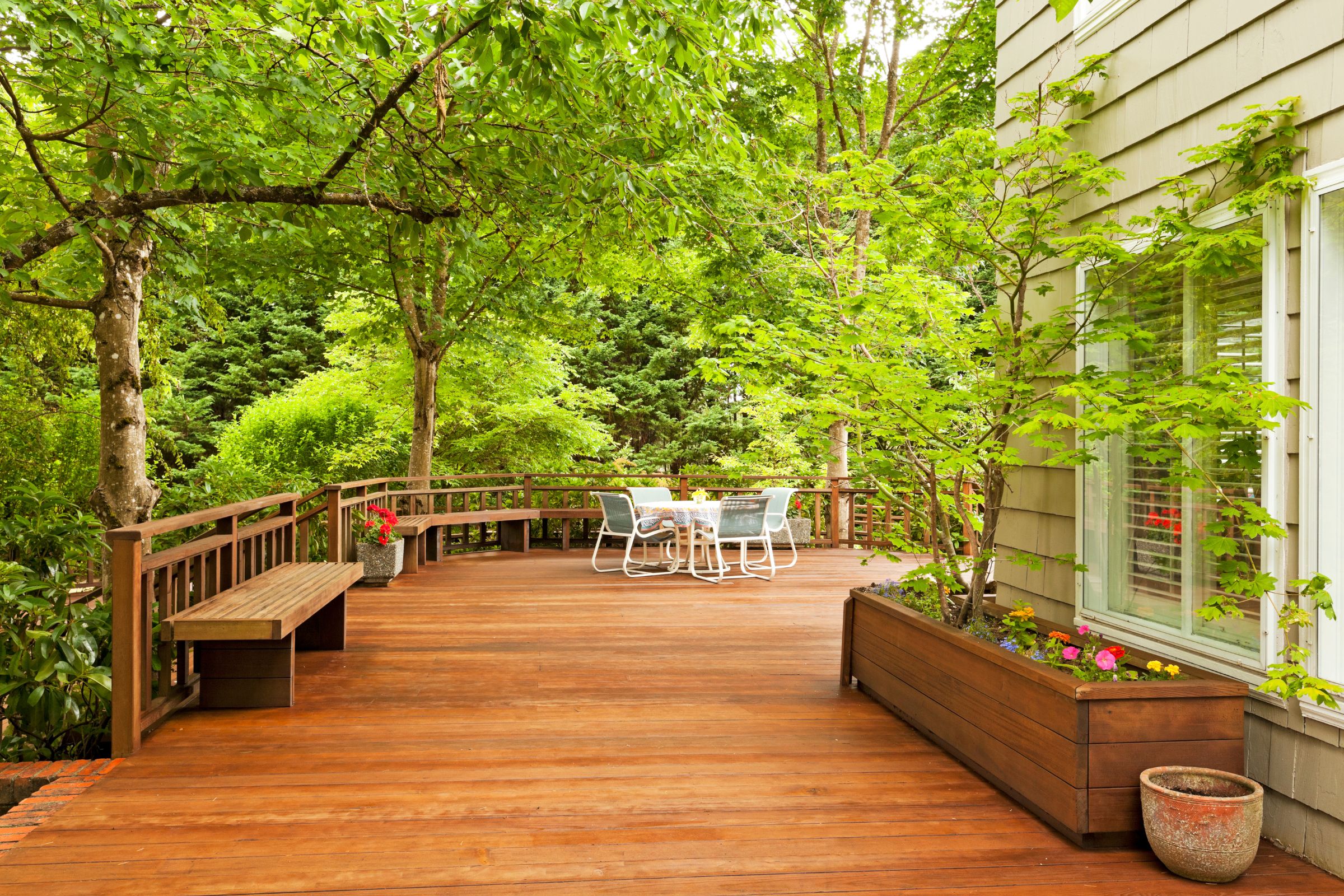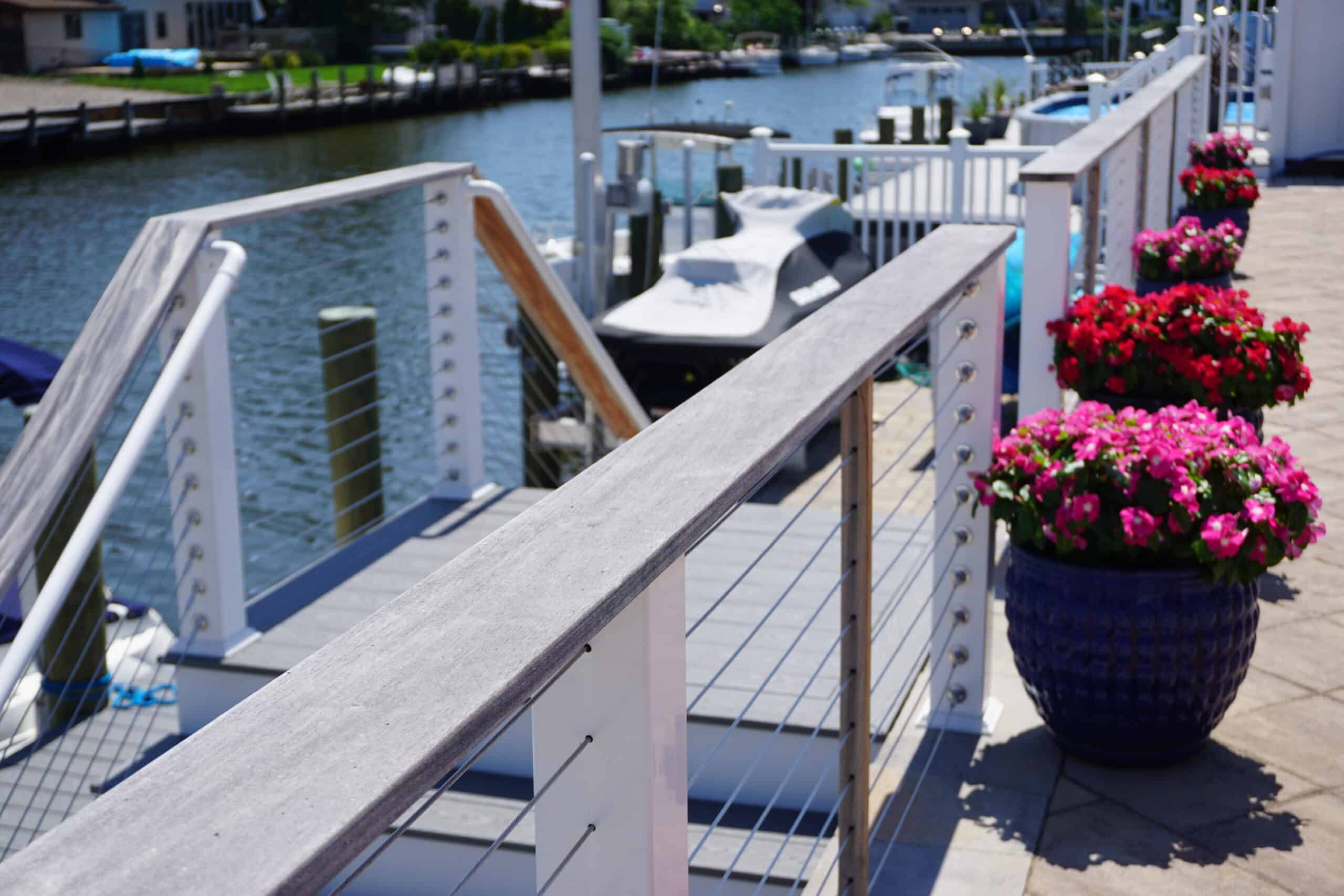Wood Decking vs. Composite Decking
When planning your dream deck, one of the most important choices you have to make is what decking material is right for your home. Wood and composite decking are two of the most popular options when it comes to decking materials. Today we’re going to look at the differences between these two common options to help you determine which decking material is right for you.
Wood Decking
Wood decking is one of the most versatile options when it comes to decking. There are a plethora of options when it comes to wood decks, from cost-effective options to high-end. Common options include cedar, redwood, and pine, but for a more exotic look, many homeowners opt for tropical hardwood options like tigerwood, ipe, and mahogany.
Composite Wood Decking
Wood-plastic composite decking (commonly referred to as composite decking) is made from wood fibers that are encased in plastic. Unlike wood decking, composite decking is resistant to rot and is easier to maintain compared to wood.
Wood Vs. Composite Decking – Which is Right for You?
To get a better idea of which decking option is right for you, let’s break down the pros and cons of wood and composite decking by these categories:
How They Look
One of the biggest factors when choosing between wood and composite decking are their appearances. Wood decking offers natural tones and textures, and give your deck a “warmth” that synthetic materials cannot emulate. Many homeowners steer away from composite because of the artificial appearance – however, modern composite decking are now manufactured in a way that better resembles wood deck boards.
Moisture Retention
Natural wood is porous, meaning without the regular application of stains and sealers, the boards readily absorb water. If your wood deck boards absorb water, they are susceptible to warping, splintering, cracking, and rotting. Composite decking is moisture-resistant to the core and doesn’t require any coatings to prevent water retention.
Maintenance
Regular maintenance is necessary to extend the life of a wood deck. Sealing and staining are imperative to keep your wooden deck looking great and to prevent fading, warping, and other damage caused by exposure to the elements. Composite decks only require sweeping and washing to keep them looking great.
Price
Wood decking is typically more affordable when compared to composites. Composite decking, while being expensive upfront, can easily outlast wood decking and pay for itself over the lifetime of your deck. The biggest determinant in the price will depend on the type of wood you choose.
No matter which decking material you choose, you can rely on the decking experts at By Carls for all your decking needs. We specialize in wood, composite, and PVC decking. Proudly serving New Jersey, Staten Island, and Eastern Pennsylvania for over 40 years. Surround yourself with the best! Call (855) BY-CARLS to get started.



